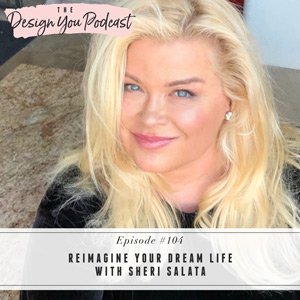
This interview was definitely a pinch-me moment because I’ve got the one and only Sheri Salata on the show. I was initially excited to have Sheri on the show because she was the executive producer of The Oprah Winfrey Show, the CEO of the network, and essentially Oprah’s right arm, and y’all know she’s my idol. That said, once I read Sheri’s book, The Beautiful No, I was blown away by her story and transformation, I was so inspired by Sheri herself, and I can’t wait for you to listen in and see why.
Sheri is now the founder of the aspirational lifestyle brand, The Pillar Life, which helps women step into who they truly are, especially in midlife or later years, and she’s also the co-host of The Sheri + Nancy Show, a top podcast about reinventing the middle of life. Redefining our lives and wanting to make changes at any age can be terrifying, but Sheri’s insights on how she did this in her own life will light a fire under you to want to do the same.
Join us this week as Sheri exemplifies what it really means to create and live your dream life. It’s never too late to make changes and reset your life towards a direction you want it to go in, and Sheri’s wisdom around this is going to open your eyes to all the opportunities that are available to you. You are in the driver’s seat and have all the power to change your life and choose happiness, and Sheri is giving us some gold nuggets on how you can start implementing some of these practices into your own life.
If you want to keep this conversation going, you have to join my free Design You Podcast community on Facebook. We have great conversations over there about the podcast episodes and our podcast guests are in there too! So head on over and I’ll see you there!





